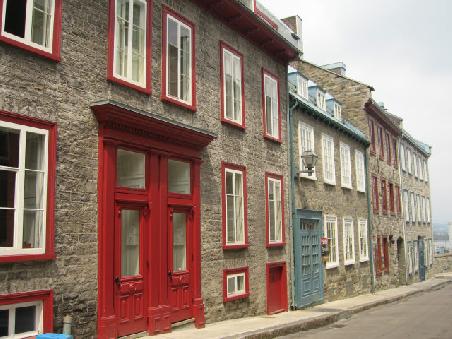The last two weeks have seen both a radical change in the identity of a superhero and the death of a super-villain. First came the shocking news that Action Comics no. 900, released on the April 27, would feature Superman, America's first superhero, renouncing his American citizenship (
Superman Renounces His U.S. Citizenship). I recently completed my junior theme in which I borrowed Superman's motto: "Truth, justice, and the American Way" in my title. Superman defends his monumental shift in thinking by saying he is "tired of having my actions construed as instruments of US policy" and that the world is " too small. Too connected" to only fight for America. Reading this for the first time it caused me to wonder about the state of patriotism in the US. Is Superman's split from America somehow indicative of a shift in identity for Americans in general? Are we identifying less with the "American Way" and more with more global ideas like "truth" and "justice"?
Then yesterday a man long thought to be at the forefront of one of the greatest threats to the United States was killed. Osama bin Laden wasn't just shot anywhere: his Abottabad mansion complete with its electric fences and bared wires and hostage-taking henchmen was a classic super-villain lair. And while the flag-waving, and USA chants that ensued were viewed by many as earnest--if misplaced--displays of patriotism. For me these impromptu celebrations symbolized a last hooray of sorts; one last nostalgic attempt to recreate the "United We Stand" revelry that paradoxically sprung from Osama's worst crime. The feelings of indignant rage before our fight against terror became about oil and nonexistent weapons.
In many ways the almost ten years that have passed since 9/11 can be summed up in Superman's founding principles. We as US citizens learned the harrowing truth that there are people hell-bent on and plenty capable of attacking Americans on our own soil. We sought justice, in one fashion or another, for the blow we were dealt that day, across the deserts of the Middle East. And from it I get the sense that we redefined the "American Way".
Osama bin Laden has always been an almost mythical character in my eyes. Evil, manipulative, charismatic, capable of incredible escape; he was the perfect villain. In many ways he could be regarded as our generation's Hitler. Despite all this, his death has inspired, among other feelings, a reluctant sadness in me. It's a feeling of purposeless that brings to mind the question: who are we fighting now? The hero ceases to be a hero when there is no villain to thwart. I can't help but think that Osama's final moments in a wealthy Islamabad suburb were also part of the death of something greater. It's a special kind of patriotism that comes from fighting a war, not one against greedy imperialists or power-hungry dictators, but against the idea of terror itself. Its an ideological fortitude, a galvanizing of American values that I doubt I will ever see again during my lifetime. These days little is said about unity or the defense of our ideals, Americans seem more interested in domestic issues. America's heroes now are the ones who seek to change America from within instead of protecting it from without. With the death of Osama America's superheroes may have lost their last great supervillain for now, as Superman puts it in his latest comic, "Truth, justice, and the American Way--it's not enough anymore". Perhaps it was naive to expect such a superficial, over-simplified Us vs. Them philosophy to last any longer than it did. But as patriotism in the US gets a new identity I'll try to remember the American Way we've known for the last 10 years, where it seemed like those three things were all we needed.
 Fourth quarter was an interesting one for me. I must admit my blogging took a hit from Junior Theme. Howver, I feel like I got to try out a lot of new stuff. Take for instance my blog on Osama's death. While it's far from perfect I think this post was the most personal for me. I wrote it the night that Osama died right after I heard of his assassination. Being able to write in such a way was really liberating. It felt like I was able to express myself in a more pure form. That's what I loved most about blogging, a blog post can take any number of shapes and forms. This post definitely allowed me to exercise some of that freedom that blogging has afforded me as a writing style.
Fourth quarter was an interesting one for me. I must admit my blogging took a hit from Junior Theme. Howver, I feel like I got to try out a lot of new stuff. Take for instance my blog on Osama's death. While it's far from perfect I think this post was the most personal for me. I wrote it the night that Osama died right after I heard of his assassination. Being able to write in such a way was really liberating. It felt like I was able to express myself in a more pure form. That's what I loved most about blogging, a blog post can take any number of shapes and forms. This post definitely allowed me to exercise some of that freedom that blogging has afforded me as a writing style.





